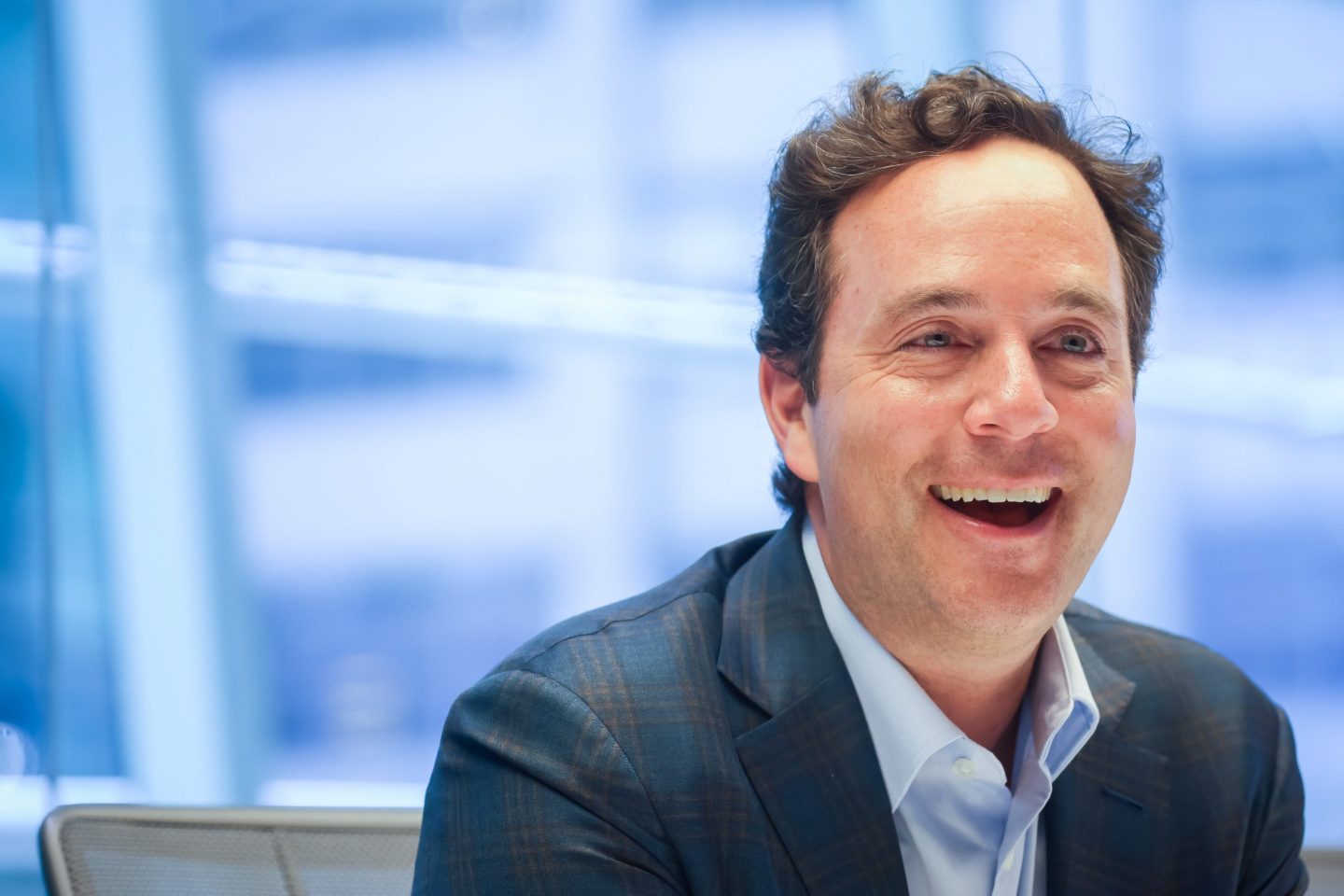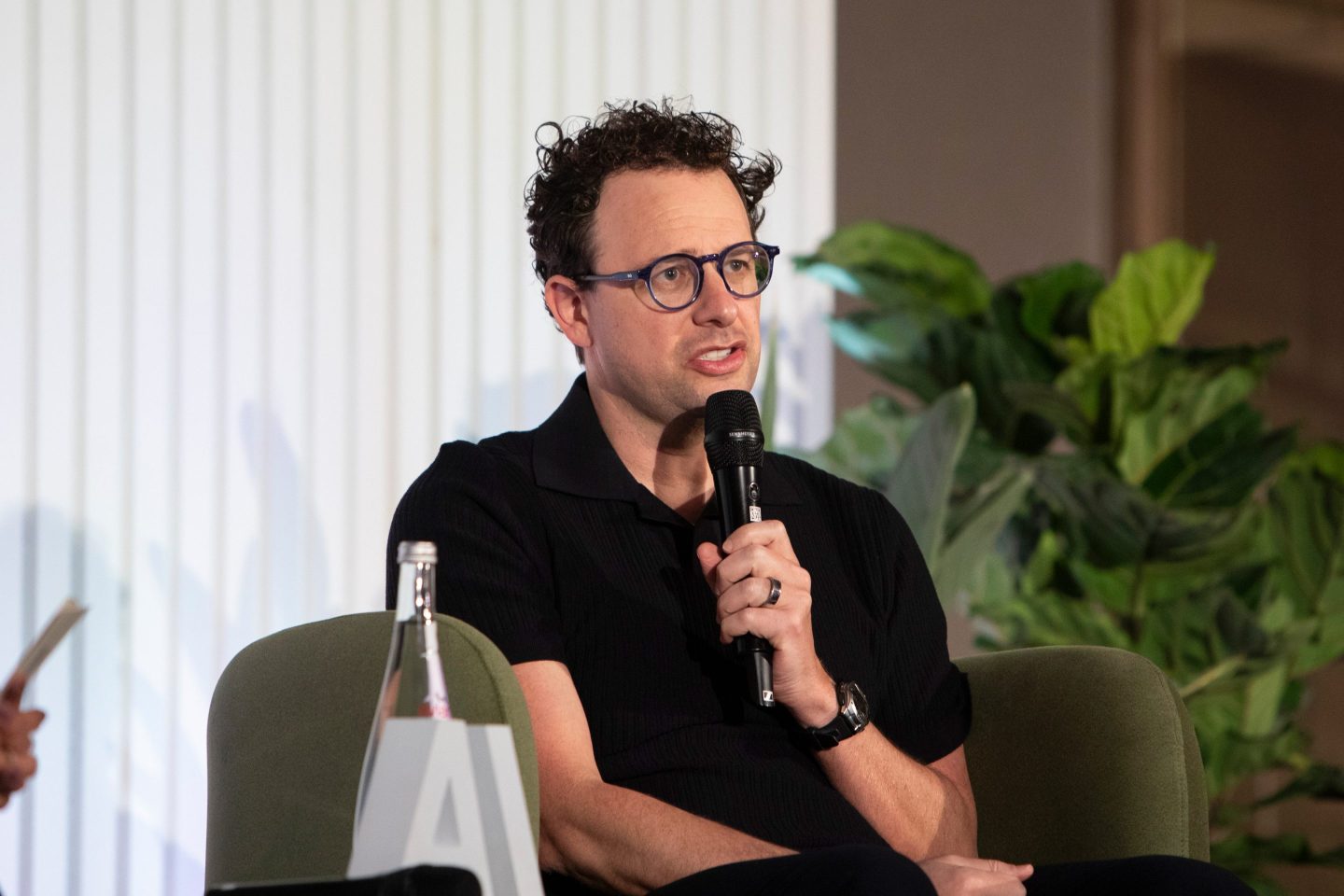DHL Express Europe CEO Mike Parra talks like a riled-up coach on the verge of a championship, with the kind of motivational cadence you’d expect from Brené Brown, only more urgent. Yet his leadership mirrors the company’s culture, with a people-development system that feels more like that of a university than a logistics giant.
Parra’s perspective stems from four decades at DHL, which employs nearly 600,000 people across 220 countries. As of 2024, he took the reins of its international courier division, DHL Express, which tops the Fortune 100 Best Companies to Work For – Europe list.
“I never forget that I started sorting mail,” Parra says, which left him convinced that supervisors need deep preparation and support, not just technical skills. “We’ve always said that our supervisors are basically the glue,” he explains. It is “without a shadow of a doubt the most difficult position” in the company, caught between leaders and teams, expected to counsel, coach, and correct in real time.
To prepare them, DHL built an 18-month CIM Supervisory Excellence Academy within its Certified International Specialist (CIS) program. “[It] is owned by us, delivered by us … and managed internally … which is our secret sauce,” Parra says, adding that the company spends €55 million to €60 million ($59 million to $65 million) annually on the training, now in its 17th year, with a measurable return.
“[More than] 80% of the supervisors that go through the program are promoted up one level,” he says, and DHL tracks impact down to the team level via its employee opinion survey. The curriculum blends behavioral nuance with managerial rigor. Supervisors learn a feedback framework he calls “AID—action, impact, do.” They practice coaching “in an enabling style,” guiding teammates to find their own solutions instead of managers taking over.
“[It] is owned by us, delivered by us … and managed internally … which is our secret sauce. [More than] 80% of the supervisors that go through the program are promoted up one level”
CEO Mike Parra on DHL’s CIM Supervisory Excellence Academy
Rituals emphasize the importance of learning—graduates wear caps and gowns, tassels turn, and the ceremony streams worldwide. “Many are accredited with college credits from a university in the U.K.,” says Parra, who even teaches the course. “As a CEO, I facilitate. That gives it validity,” he says, though he benefits directly, too: “When I’m training, I’m retraining myself.”
The culture hinges on feedback. “We call it the five-second rule,” Parra says: praise in the moment when you see great work, with “developmental” notes delivered privately. “Feedback is a gift,” he repeats. Given often, employees eventually receive it openly, not defensively.
Employee experience isn’t just about management and development. Career mobility matters, too, and here again DHL Express—and the wider group—engineers its solution, rather than leaving
it to chance. An internal “career marketplace” matches skills to open roles, flags gaps, and offers personalized learning to help close them.
As digitization and agentic AI reshape work from customer service to customs, DHL is also upskilling people for digital roles and training supervisors to lead the transition. “Team members who were handling just one call at a time are managing five chats simultaneously. That’s because of our training,” Parra notes.
“Feedback is a gift”
He doesn’t pretend the journey is tidy. Some people tap out during training, choosing a different role or company. Leadership sometimes slips back into being only results-driven. But the business stays committed to supporting people and improving. Indeed, Parra traces DHL Express’s inflection point as a great workplace to 2009, when CIS added “respect-focused behaviors” to its training. It’s an appropriate observation for a leader who started his career sorting mail, and ended up running courses at a corporate “university”—a recognition that the best education is the kind that never stops.












